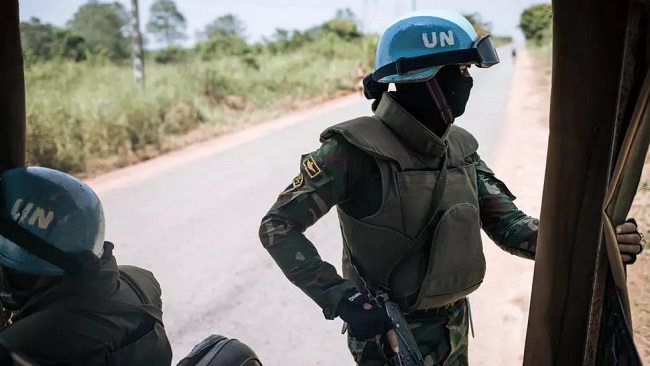Fighting along the main route from Cameroon into Central Africa has made it increasingly difficult to get assistance to millions of people
Conflict along the main access route from Cameroon into the Central African Republic (CAR) has made it increasingly difficult to get assistance to 2.3 million people projected to be food insecure, UN humanitarians said on Monday.
“The very high levels of insecurity along the main supply route from Cameroon (MSR1) has caused the suspension of imports,” the UN Office for the Coordination of Humanitarian Affairs (OCHA) said. “More than 1,600 inbound trucks, including 500 with humanitarian supplies, have been blocked at the border since mid-December.”
Humanitarian organizations are beginning to report critical stock outages, including food and trauma kits, OCHA said.
Closing the supply route has caused an increase between 75 percent and 220 percent in the prices of basic foodstuffs, such as cassava, oil, meat and rice, in several markets in the country, including the capital of Bangui. The shutdown in truck traffic has also closed several other markets, the office said.
“This is happening in a context of severe food insecurity, as 2.3 million people were already projected to be food insecure,” OCHA said in a release.
“OCHA is very concerned about the serious deterioration of the humanitarian situation in the CAR which has resulted in a spike in new displacements,” it said. “Between Dec. 15 and Jan. 28, 226,000 people were pre-emptively displaced internally, 129,000 of whom had since returned home, while 97,000 remained internally displaced,” the release said.
Also, local authorities said refugee arrivals into the Democratic Republic of the Congo reached 92,000 people. About 13,240 have crossed into Cameroon, Chad and the Republic of Congo since violence erupted in December ahead of the CAR general elections, the humanitarians said. The refugee flow has not stopped.
Recent rapid assessments show alarming figures of severe malnutrition among the newly displaced.
The humanitarian appeal for CAR this year calls for 444.7 million U.S. dollars, but it was set at the time to aid only 1.84 million people.
Source: Xinhuanet





